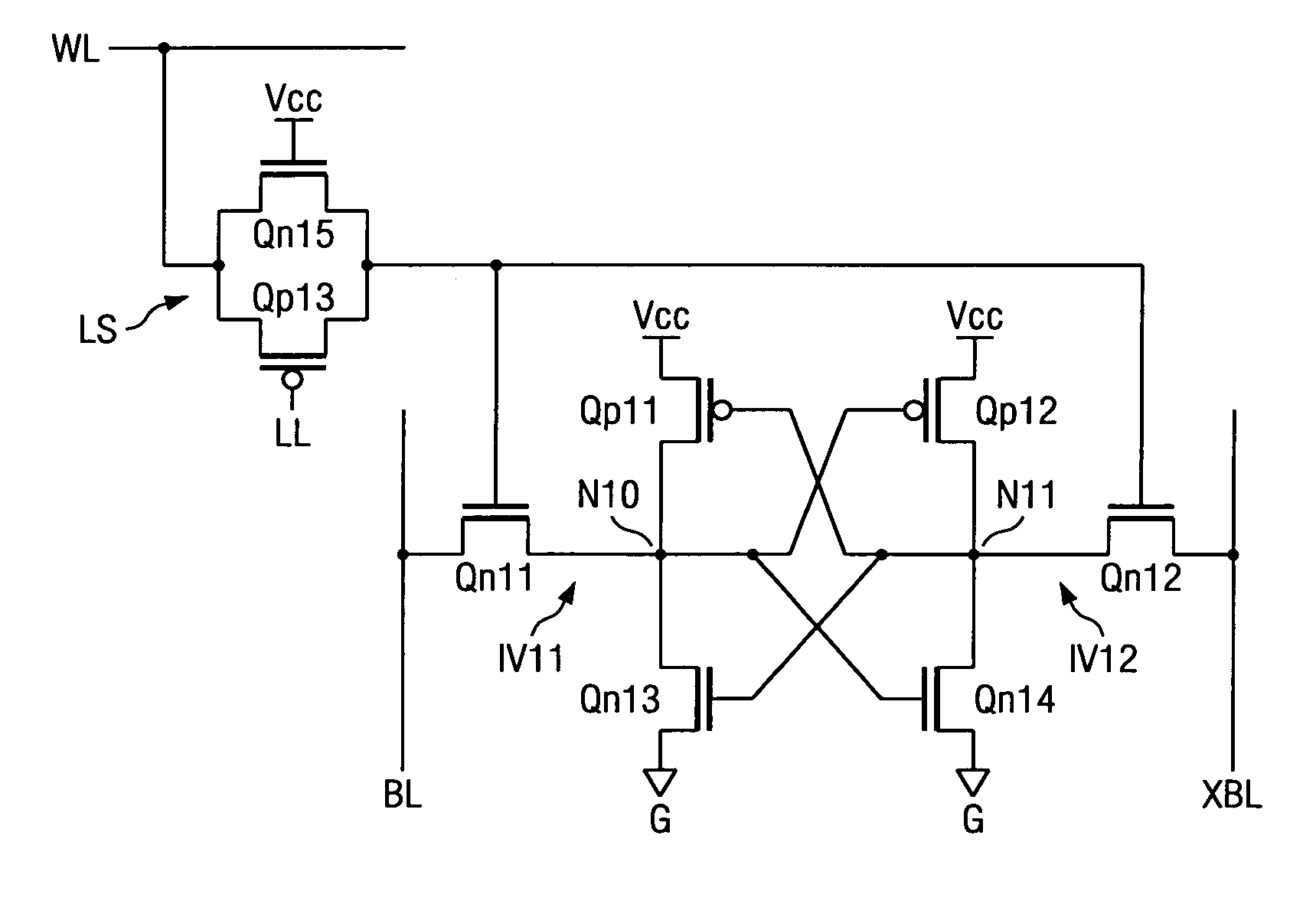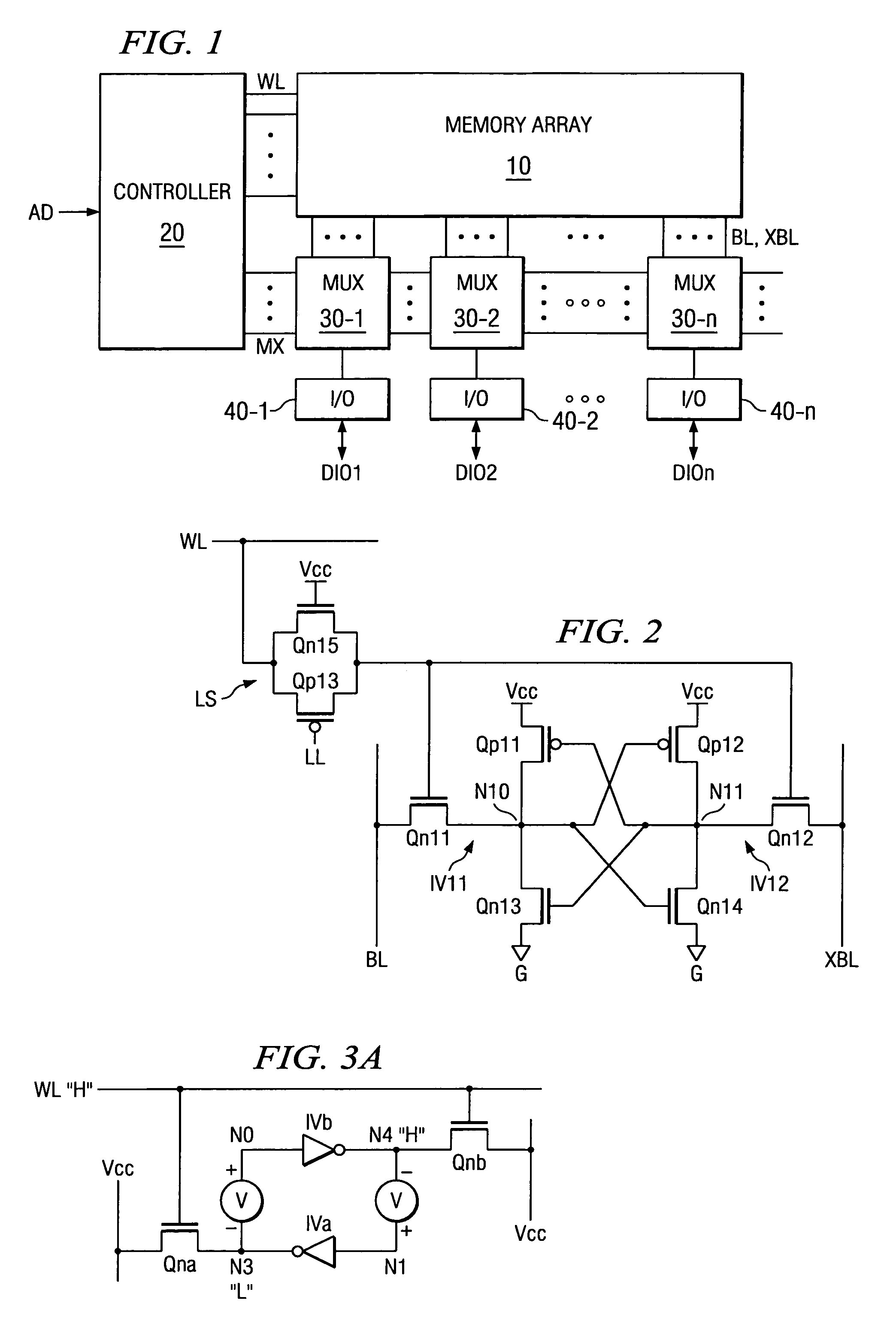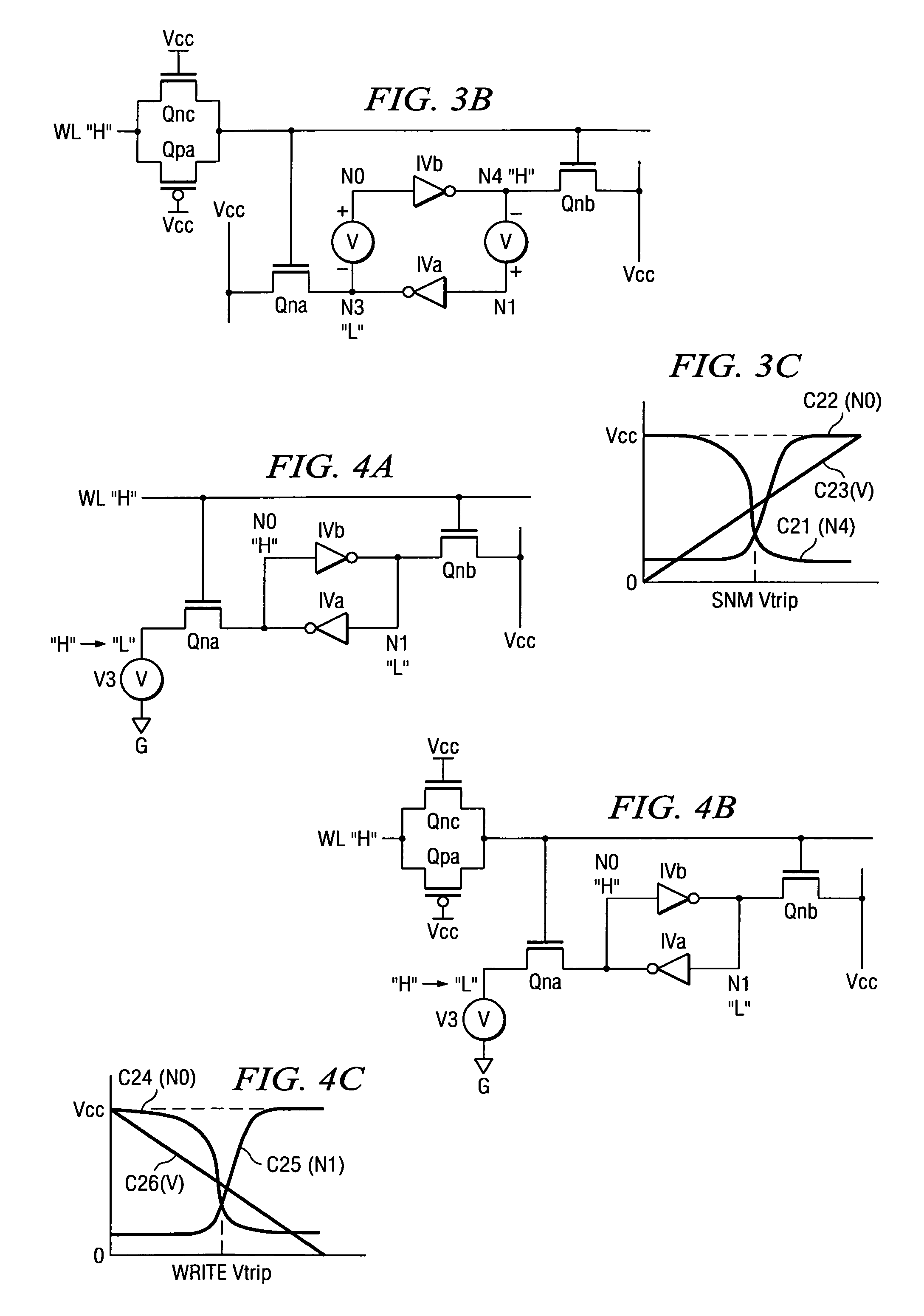Static memory cell and SRAM device
a memory cell and sram technology, applied in static storage, information storage, digital storage, etc., can solve the problems of reducing snm, reducing snm, and difficult to meet the contradictory requirements of snm and wm at the same time, so as to reduce the driving of the transistor pair
- Summary
- Abstract
- Description
- Claims
- Application Information
AI Technical Summary
Benefits of technology
Problems solved by technology
Method used
Image
Examples
embodiment 1
[0046]FIG. 1 is a diagram illustrating an example of the constitution of the SRAM device of Embodiment 1 of the present invention. The SRAM device shown in FIG. 1 comprises memory array 10, controller 20, column selecting circuits 30-1 to 30-n (where n is a natural number), and input / output circuits 40-1 to 40-n. Controller 20 shows an embodiment of the controller of the present invention. Memory array 10 contains plural memory cells arranged in an array. The memory cells that are arranged side by side in the same row are connected to the common word line WL, and the memory cells that are arranged side by side in the same column are connected to the common bit line pair BL, XBL. Also, among said plural memory cells, the memory cells arranged side by side in the same column are connected to common level control line LL. Level signal line LL is a signal line that transmits the control signal for level conversion (level control signal) to be explained below.
[0047]Among plural word line...
embodiment 2
[0071]Embodiment 2 of the present invention will be explained below.
[0072]FIG. 8 is a diagram illustrating an example of the constitution of the SRAM device in Embodiment 2 of the present invention. The SRAM device shown in FIG. 8 has main array 11, write controller 21, read controller 22, column selecting circuits 31-1 to 31-n, 32-1 to 32-n, input circuits 41-1 to 41-n, and output circuits 42-1 to 42-n. Write controller 21 is an embodiment of the first controller of the present invention. Read controller 22 is an embodiment of the second controller of the present invention. Memory array 11 also has plural memory cells arranged in an array like memory array 10. Of these plural memory cells, the memory cells arranged side by side in the same row are connected to the common write word line WWL and read word line pair RWL, XRWL, and at the same time, the memory cells arranged side by side in the same column are connected to the common write bit line pair WBL, XWBL and read bit line RBL...
embodiment 3
[0091]Embodiment 3 will be explained below.
[0092]FIG. 12 is a diagram illustrating an example of the constitution of the SRAM device pertaining to Embodiment 3. For the SRAM device shown in FIG. 12, memory array 11 in the SRAM device shown in FIG. 8 is replaced with memory array 11A (to be explained below), and at the same time, channel wiring portions 51 and 52 are arranged between memory array 11A and column selecting circuits 31-1 to 31-n, 32-1 to 32-n.
[0093]FIG. 13 is a diagram illustrating an example of the constitution of memory cells MC1, MC2, . . . and level conversion circuits LS1, LS2, . . . contained in said memory array 11A. As shown in FIG. 13, memory cells MC1, MC2, . . . have the same constitution as that of the memory cell shown in FIG. 9 excluding level conversion circuit LS (that is, Qn11, Qn12, Qn17, Qp15, IV11–IV13). Although not shown in the figure, the constitution is the same as said memory array 11 with respect to the connection of write bit line pair WBL, XW...
PUM
 Login to View More
Login to View More Abstract
Description
Claims
Application Information
 Login to View More
Login to View More - R&D
- Intellectual Property
- Life Sciences
- Materials
- Tech Scout
- Unparalleled Data Quality
- Higher Quality Content
- 60% Fewer Hallucinations
Browse by: Latest US Patents, China's latest patents, Technical Efficacy Thesaurus, Application Domain, Technology Topic, Popular Technical Reports.
© 2025 PatSnap. All rights reserved.Legal|Privacy policy|Modern Slavery Act Transparency Statement|Sitemap|About US| Contact US: help@patsnap.com



